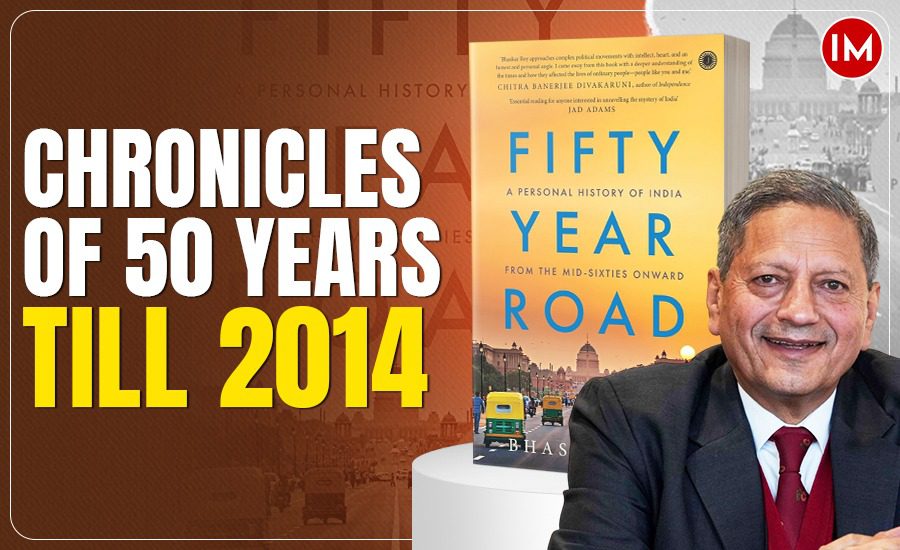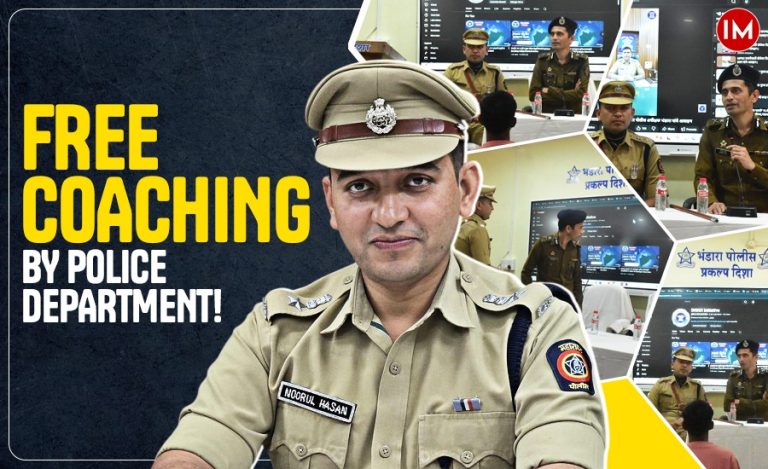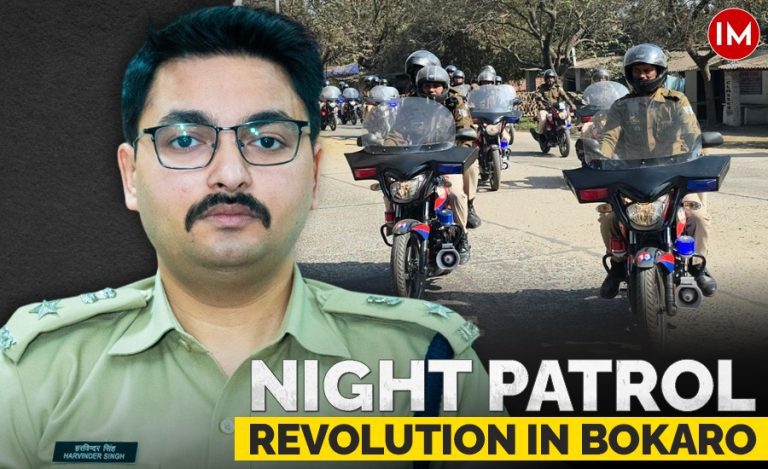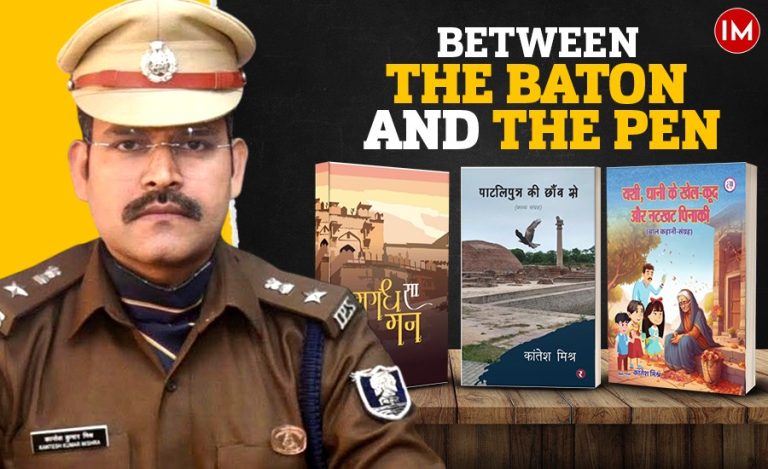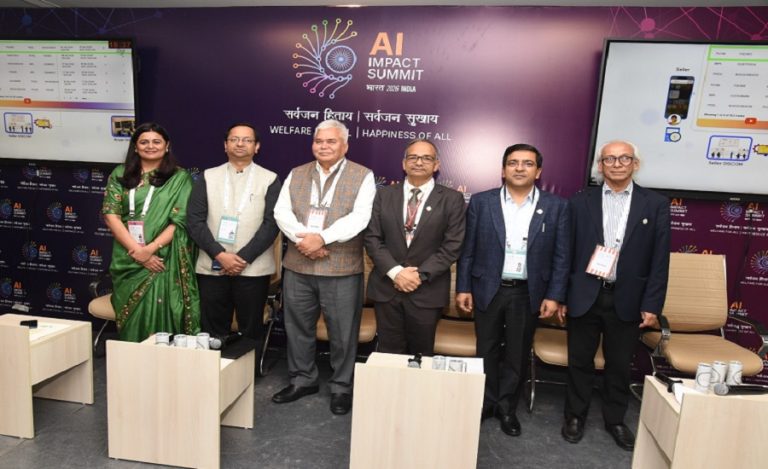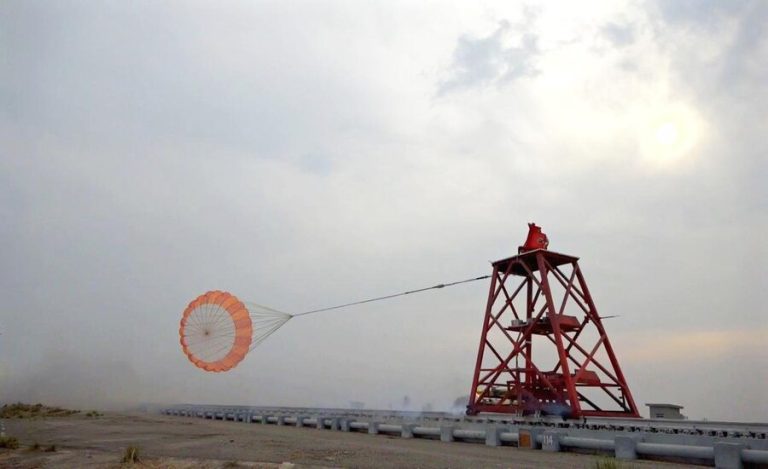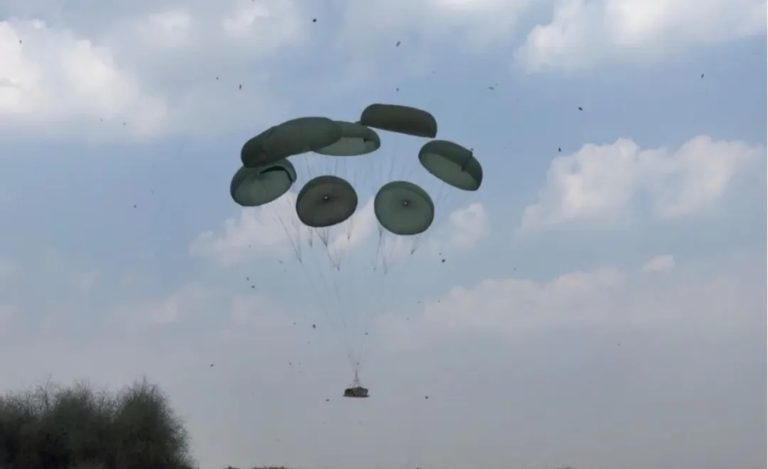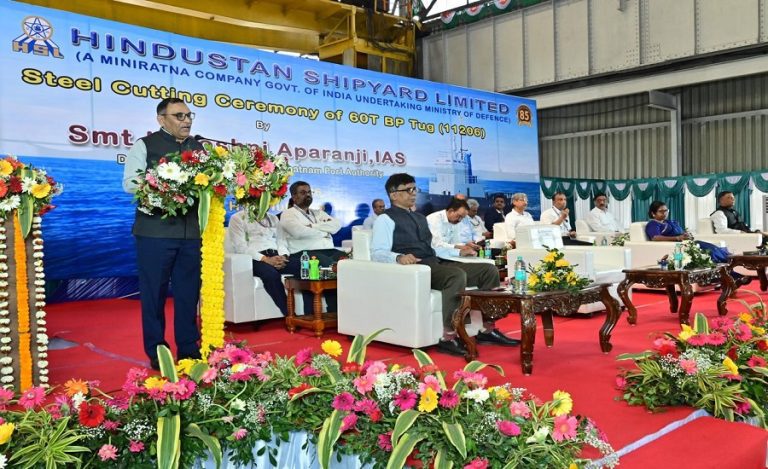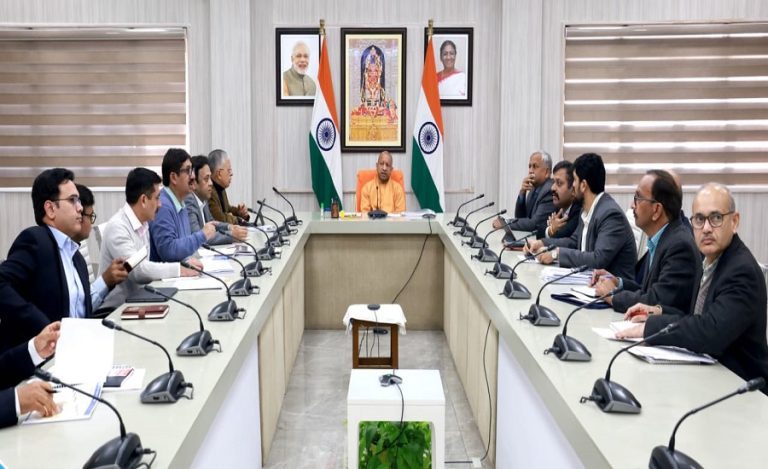I met Bhaskar Roy for the first time at the IIC, New Delhi on 31 January earlier this year. After an engaging discussion on his book ‘Border Crossers’ – a highly sensitive portrayal of the lives and aspirations of migrants—he presented me with another book ‘Fifty Year Road: A personal history of India from mid-sixties onward’, a ‘personal-political’ narrative of the five decade period from 1964-2014. This literally ‘unputdownable’ narrative covers the historical context, social spaces, cultural narratives, significant personalities, important institutions, ideological orientations as well as the changes in the world of media and polity in these fifty years.
The period that he covers also coincides with my childhood, boyhood and growing up years. He was born in December 1960, and I am just three months younger to him. I too studied English literature for Honours, had a brief tryst with political activism at JNU, worked as a Trainee journalist with the Times of India group, but wrote the IAS exam and was posted to Darjeeling in the heydays of the Gorkha National Liberation Front (GNLF) agitation. Had he visited Kalimpong during that period, we would have probably met, for I was holding charge of the subdivision in those turbulent times.
Both of us were witness to sectarian violence and terrorism – he in Kolkata, and I in Punjab; though the way Naxalism impacted West Bengal was without parallel elsewhere. Both of us are also witness to the intrinsic ability of this nation to resolve differences through political settlements. Whether it be through reorganization of boundaries, or tweaking the Fifth or Sixth schedule and other concessions within the constitutional framework.
To understand the context of this review, let me take the readers to the Bengal of his times. He was born to middle-rung government officials. Both parents were sympathetic to the Left, but not in a partisan sense. They were not dismissive of either Mahatma Gandhi or Rabindranath Tagore, whom the radical Marxists looked down upon with disdain. His mother was indeed the centre of gravity in the refugee township of Ashoknagar. This settlement had come up on a discarded airfield of the RAF after the unprecedented ingress of Hindus fleeing the persecution in East Bengal. We learn of the ascendancy of the Communists after the deaths of B.C. Roy and Nehru in 1962 and 1964, the 1965 war and the food crisis and the politics of Naxalbari – as enunciated in eight documents of Charu Mazumdar. In fact, Mazumdar realised that replicating Mao’s Long March was an ‘absurd idea’: it would be more practicable for the armed cadres to liberate the areas where they were strong.
Thus, the first document called upon every member to set up a clandestine group of five and take independent action depending upon the ground situation. The second thesis was about taking control over areas in which they exercised a stronghold. The third sought greater involvement of women as they were yet not on the police radar. The fourth talked of guerilla forces, while the fifth called the CPM a renegade faction. The sixth document assailed the CPM for supporting the Indian position on the Indo Tibet border; while the seventh document called for immediate mobilisation of peasants for an uprising. The last and final thesis accused the CPM leadership of falling for the allure of parliamentary democracy, thereby diverting attention from the imminent need of an intensified class struggle.
The class struggle was indeed gruesome: the fictional account given by Jhumpa Lahiri in The Lowlands is matched with the non-fiction, first person experience of the young Bhaskar Roy. Hundreds, if not thousands of young women and men lost their life and limb to a cause that took up dubious means, but was repressed by an even more sinister response. This is when West Bengal lost its pre-eminence not just in its industrial might, but also in academic, cultural and political spheres.
Bhaskar then takes us to the idyllic life in the block headquarters of Burwan on the banks of Mayurakhi river at the conjunction of the districts of Murshidabad, Burdwan and Birbhum, where her mother is posted and gets a house in the officers’ colony. The rural market on the Dak Bungalow road was like that of Wessex in Thomas Hardy’s ‘Mayor of Casterbridge’. But this idyll was broken by the genocidal attack by the Pakistan army on the hapless Bengalis in East Pakistan (now Bangladesh).
Homeless on the Jessore Road
The plight of the ten million refugees from East was captured by Allen Ginsberg in the poem September on Jessore Road:
“Millions of souls, nineteen seventy-one
Homeless on Jessore Road under grey sun
A million are dead, the million who can
Walk toward Calcutta from East Pakistan”
The victory of 1971 not only gave Indira Gandhi a decisive mandate in the Lok Sabha that followed, but also catapulted SS Ray to power in Bengal – where he unleashed a reign of terror to quell the Naxalites. Cynical to the core, it was he who advised Indira Gandhi to impose the internal Emergency on which President Fakhruddin Ahmed put his signature on the dotted line without batting even an eyelid.
When the CPM-led Left Front came to power in 1977, they introduced land reforms, and in one of the largest state-led land redistribution programmes in the world, over 1.1 million acres of land were distributed among 1.4 million sharecroppers. This reviewer is a witness to this process, and has seen the empowerment and change in rural lives and livelihoods in the hinterland. The massive expansion of irrigation through borewells (Boro) saw the introduction of a third rice crop (Boro paddy) and the state became self-sufficient in food grains for the first time in the early eighties – a far cry from the famine which the state had witnessed four decades ago.
We get to learn of his maiden efforts in the world of media – from editing and publishing ‘little magazines’ to contributing columns in the Frontier – a publication of the far left – Amrita Bazar Patrika as well as the Statesman. Convinced that his future lay in journalism, he applied for, and got a job with the PTI in New Delhi in the summer of 1984. Mr Clean Rajiv Gandhi brought in fresh energy and a professional approach to polity, but as a greenhorn. He did not quite understand the nuance of politics, and alienated the old guard of the party. He was ill advised – both on the Ayodhya and the Shah Bano issues, and the Congress took the most obscurantist measures which opened the floodgates to the politics of Mandal and Kamandal – and the Congress could match neither. The days of the all-inclusive Congress umbrella where different shades of option could be expressed were over, and from 1991, the Congress could come to power only on the strength of coalitions, which created its own set of contradictions and compromises.
One of the most remarkable interviews that he recollects is the one with Kanshi Ram, who lived in Regarpura, the backyard of Karol Bagh. This was a world different in every possible way from that of the mainstream politicians who lived in Lutyens Delhi. Kanshi Ram had understood the salient role which Dalits could play in electoral politics if they ‘voted as a bloc’. They may not win seats, but they could determine the winner! However, his formidable political asset was wasted by his protégé Mayawati who decided to ‘monetise’ the support base, but in the process, became both socially and politically irrelevant.
One could go on and on, but book reviews, like books, have a word limit, as well as a deadline! But before closing, let me share Bhaskar’s glimpse into the world of his wife, Mani. She is an educator of economics, whose research on migrant life in the cities, especially about the aspirations of the parents, as well as of the children and teenagers themselves has been published under the title ‘From Shanties to School’. While I have not read the book (yet), I am convinced that the theme and detail of ‘Border Crossers’ bears the imprint of this scholarly research.
The fifty-year road ends with the rout of the UPA in 2014, and the ascendancy of Narendra Modi – both within the party as well as in the government. Although Bhaskar Roy is not in active journalism now, he is a keen observer of the world around him; therefore one is hopeful that he will extend this journey, decade by decade, and thus become an authentic chronicler of contemporary India.

